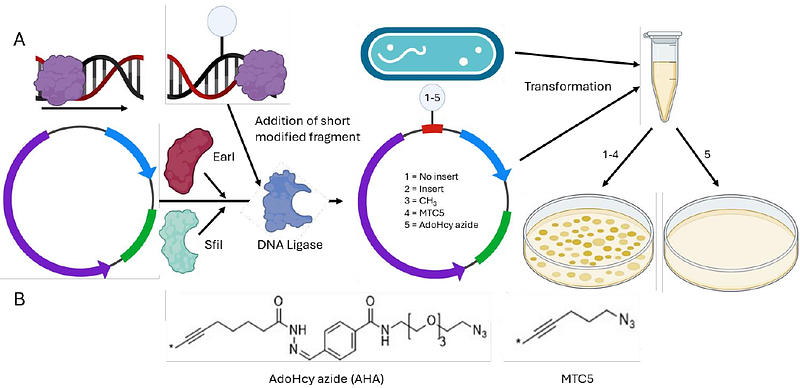A modified methyl transferase cofactor to selectively disable gene expression in E. coli

A modified methyl transferase cofactor to selectively disable gene expression in E. coli
Irving, O. J.; Stone, S.; Neely, R. K.; Albrecht, T.
AbstractArtificial control of gene expression in bacteria offers interesting prospects for influencing bacterial pathogenicity and antibiotic resistance. We show that the methyl-transferase cofactor, AdoHcy azide, can disable gene expression in modified plasmids in some strains of E. coli, where ampicillin and kanamycin resistance as well as eGFP genes were selectively and independently disabled. The disabling of transcription is likely due to steric inhibition during transcription initiation, which is further confirmed by Sanger and nanopore sequencing results. Both sequencing methods showed that 3-6 nucleotides were absent from around the modification site, with the post growth, extracted AmpR/ eGFP plasmid showing evidence of restriction, with sections of the plasmid, including the modification site, missing for the AdoHcy azide modified plasmids. Notably, the AdoHcy azide modification on the DNA is resistant against demethylation in the BL21 strain of E. coli.